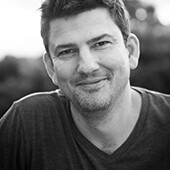Featuring
David Singh Grewal
Yale Law School
Christian Barry
Australian National University; Ethics & International Affairs Editorial Board; Global Ethics Fellow Alumnus
Matt Peterson
The Atlantic; Former Ethics & International Affairs Assistant Editor
About the Series
Launched in August 2008, Public Ethics Radio featured thinkers who engage with ethics in public life. It connected vibrant debates in philosophy with real-world politics, on issues such as military intervention, international trade, and political corruption.
To explain how power can be at work in apparently voluntary processes, Grewal introduces the concept of "network power." He argues that this dynamic drives many key aspects of globalization.
The arguments are as diverse as they are forceful. Some decry the order entirely, or claim that at the very least it is much inferior to alternative forms of globalization. Others object that is coercively imposed by powerful, affluent countries—a new and pernicious kind of imperial control. Even apparently voluntary processes, such as learning English or joining the World Trade Organization, are viewed as the result of the use of power of a morally problematic sort. Still others have rushed to defend globalization in its current form, arguing that it is certainly the best that can be feasibly be hoped for, at least for now. These enthusiasts argue that increasing globalization is developing not through the use of power, but through the free choices of people and countries throughout the world.
How is one to make sense of this debate and evaluate these claims? Today on Public Ethics Radio, we discuss globalization with David Grewal of Harvard University.
To explain how power can be at work in apparently voluntary processes, Grewal
introduces the concept of "network power." He argues that this dynamic
drives many key aspects of globalization. A network is united via a standard:
a shared norm or convention that enables coordination among its users, such
as a language. A widely used standard is more valuable than a less used one,
simply because it governs access to a larger network of people.





